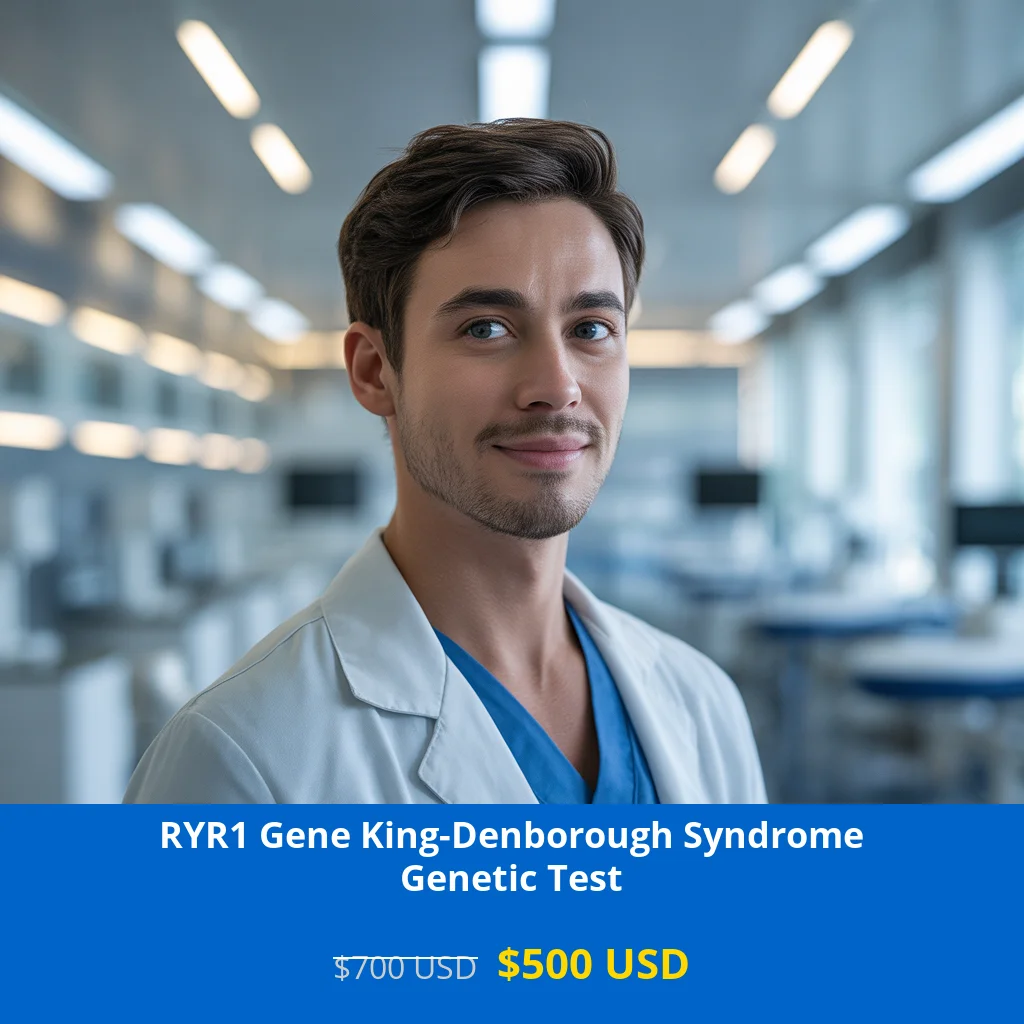RYR1 Gene King-Denborough Syndrome NGS Genetic DNA Test
Comprehensive Genetic Testing for Neuromuscular Disorders
The RYR1 Gene King-Denborough Syndrome NGS Genetic DNA Test represents a cutting-edge diagnostic tool for identifying genetic mutations associated with malignant hyperthermia susceptibility and King-Denborough syndrome. This comprehensive genetic analysis utilizes next-generation sequencing technology to provide accurate, reliable results for individuals and families affected by these serious neuromuscular conditions.
What Does This Test Measure?
This advanced genetic test specifically analyzes the RYR1 (ryanodine receptor 1) gene, which plays a critical role in calcium regulation within muscle cells. The test detects:
- Pathogenic variants associated with malignant hyperthermia susceptibility
- Mutations linked to King-Denborough syndrome
- Genetic markers for central core disease and other RYR1-related myopathies
- Inheritance patterns and familial risk factors
Who Should Consider This Test?
This genetic test is recommended for individuals experiencing:
- Unexplained muscle weakness or fatigue
- Heat intolerance or exercise-induced muscle pain
- Family history of malignant hyperthermia reactions during anesthesia
- Developmental delays with musculoskeletal abnormalities
- Previous adverse reactions to certain anesthetic agents
- Family members of individuals diagnosed with RYR1-related disorders
Clinical Benefits of RYR1 Genetic Testing
Undergoing RYR1 genetic testing provides numerous clinical advantages:
- Accurate Diagnosis: Confirms or rules out RYR1-related disorders with high precision
- Anesthetic Safety: Identifies malignant hyperthermia susceptibility before surgical procedures
- Family Planning: Provides crucial information for genetic counseling and reproductive decisions
- Treatment Guidance: Helps develop personalized management strategies for neuromuscular symptoms
- Early Intervention: Enables proactive monitoring and preventive care measures
Understanding Your Test Results
Your genetic test results will be carefully interpreted by our expert genetic counselors and neurologists:
- Positive Result: Indicates the presence of RYR1 gene mutations associated with increased risk
- Negative Result: Suggests no detected mutations in the analyzed RYR1 gene regions
- Variant of Uncertain Significance: Requires additional family studies and clinical correlation
- Carrier Status: Identifies individuals who may pass the condition to offspring
All results include comprehensive genetic counseling to help you understand the implications for your health and family.
Test Details and Pricing
| Test Component | Details |
|---|---|
| Test Name | RYR1 Gene King-Denborough Syndrome NGS Genetic DNA Test |
| Regular Price | $700 USD |
| Discount Price | $500 USD |
| Turnaround Time | 3 to 4 Weeks |
| Sample Type | Blood, Extracted DNA, or One Drop Blood on FTA Card |
| Testing Method | Next-Generation Sequencing (NGS) Technology |
Pre-Test Requirements
Before scheduling your test, we require:
- Complete clinical history of the patient
- Genetic counseling session to create a detailed family pedigree
- Documentation of any previous anesthetic reactions
- Information about family members affected by similar symptoms
Nationwide Testing Availability
We have diagnostic centers conveniently located across the United States, including major metropolitan areas such as New York, Los Angeles, Chicago, Houston, Phoenix, and Philadelphia. Our state-of-the-art laboratories ensure consistent, high-quality testing regardless of your location.
Take Control of Your Genetic Health Today
Don’t let uncertainty about genetic risks impact your health decisions. The RYR1 Gene King-Denborough Syndrome NGS Genetic DNA Test provides the clarity you need for informed medical choices and family planning. Our expert team of genetic counselors and neurologists is ready to support you through every step of the testing process.
Call or WhatsApp us today at +1(267) 388-9828 to schedule your genetic counseling session and book your test. Take the first step toward understanding your genetic health and ensuring safer medical care for you and your family.







